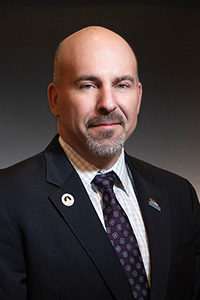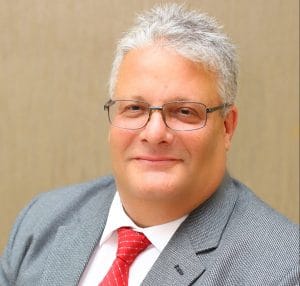For graduating high school seniors, conventional knowledge dictates that the most viable career paths require a college degree. But an increasing number of young people are beginning to seek alternatives in the unionized trades – including HVAC technician Tyler Ziztka of SM Local 265 (Northern Illinois). The reasons? Better pay, less student debt, rewarding work and the promise of a career.
In a recent Fortune article, Zitzka explained that he knew union sheet metal was the career for him since high school, when a vocational teacher – now Zitzka’s union sibling – introduced his class to the trade.
“I knew I didn’t have the school-based smarts,” he told Fortune’s Jane Thier. “I wanted to use my hands, get dirty, and be outside. I’m happy to be where I’m at.”
In her article on Zitzka and the burgeoning percentage of young workers who may be straying from the traditional undergraduate path – the fall 2021 college freshman class was 9.2% smaller than that of fall 2019 – Thier highlighted the many benefits of working in union sheet metal. The wages, for one: as Zitzka told Fortune, he took home $58,000 as an apprentice last year, and once he finishes his apprenticeship, he’ll make between $90,000 and $110,000. He has no student debt; last year, he was able to buy a home.
But it’s not all about compensation. Zitzka told Fortune that his sheet metal work provides a sense of fulfilment that he sees lacking in the office buildings he often services. “I have that feeling of ‘Hey, I did something important, I made someone happy,’” he said in the article.
“We’re the people who make this country move,” he added. “We’re the ones working overnights, early mornings, away from family.”
Zitzka told Fortune that contemporary society’s perception of the trades, especially in relation to higher education, is frustrating. For example, he explained, very few high schools – including his own – promote the trades as either a career path or a way of furthering one’s education, despite the fact that Zitzka’s local union and employer pay for the training and classes that have furthered his knowledge and skill set.
“Going into trades — they don’t accept that as a form of higher ed, even though I’m going through a four-year apprenticeship,” Zitzka recounted to Fortune, noting that the union offers various classes for workers to become certified in new skills and, consequently, more employable in different areas. What that amounts to, he said, is a greater amount of self-worth and opportunity.
“Being in the trades, you value yourself the more you educate yourself … The more I practice, the more I better myself, the more valuable I’m going to be, the more people are going to want me. People will be fighting over me.”
As the country continues to navigate the COVID-19 pandemic, during which the tenuous nature of large swaths of contemporary work revealed itself, more people – including those just entering adulthood – are asking where and how they can find a steady, meaningful career. For sheet metal workers like Zitzka, the answer is in the union trades. As he told Fortune, “I get to make a living working in a job you can’t send overseas, and you can’t give away.”

